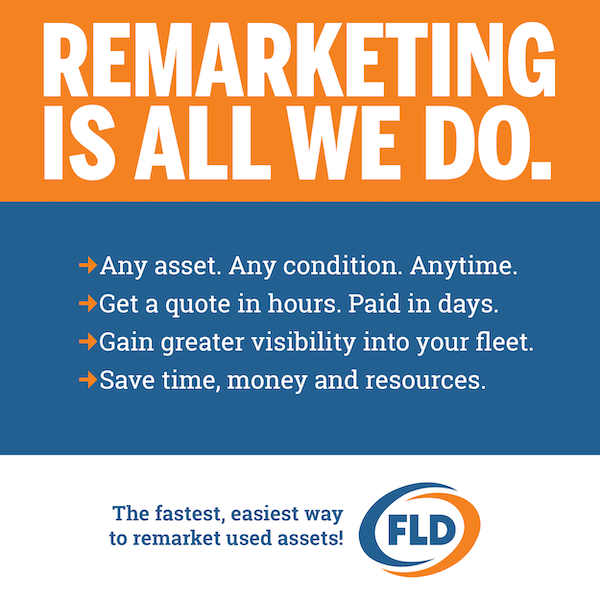
By Jake Ernest, Director of Sales, Motus
Recessions are unforgiving. Decisions that took months of carefully planning and preparation have become pain points in a matter of weeks. The clearest example of this? The company-provided vehicle. While some businesses cannot function without a fleet of specialty vehicles – utility and waste management companies, for example, top that list – the chances are all your fleet vehicles are not similarly essential to your business. This guide will walk you through the less obvious costs of idle vehicles and alternative methods to manage them.
Idle Vehicles
Whether you’re leasing them or bought them outright, each vehicle in your fleet costs you money and those expenses are part of your bottom line. When they’re being used, they may be working against that expense. But in circumstances where a vehicle, or an entire fleet, isn’t being used? That’s costing you even more money without benefit.
Let’s dive into what makes up these costs. Companies typically spend a minimum of $600 or per month per fleet vehicle. The lease, insurance, registration and maintenance continue regardless of whether or not it’s on the road. Those expenses don’t just disappear because the asset isn’t being used, and in a time where business is slowed and employees are self-quarantined, the company keeps paying for that vehicle.
- 100 fleet vehicles
- 30 days with idle vehicles
- $600 average monthly payment
Total = $60,000 per month
Downsizing
When the economy takes a sudden downturn, businesses identify ways to scale their business to match the current landscape, which sometimes includes downsizing. When fleet programs downsize, it means finding a place to store idle vehicles and a way to transport them there. This is another expense added to the fixed costs your company is already struggling to absorb during an economic crisis. The cost has transformed from vehicles depreciating on your company lot to now include additional spend for storage and transportation. Don’t forget, you’ll see those transportation costs again when it comes time to ramp back up, in addition to reconditioning and maintenance they’ll require after their time in storage.
Employee Benefit
Maybe your company decided on a company-provided vehicle program because, at the time, it seemed like a worthwhile investment. That’s no longer the case with much of the workforce. In fact, according to a Motus study, most employees would prefer to drive their own cars over company provided vehicles. They’d even take a $600 allowance over a fleet vehicle, as they have the comfort of their own car – one they had the freedom to choose.
But, in a downturn, your company may have to reduce your workforce and continue to pay the associated expenses with fleet vehicles. Those could have been used to reduce employee downsizing in sales or any other department if a more flexible vehicle program was in place.
What Can Your Company Do About This?
Start by reviewing all costs and company policies. Company spend may have been efficient previously, but now is the time to review everything and find ways to reduce fixed business expenses. Focus on eliminating wasteful spend. Take a good look at the true costs of operating a fleet, and how transitioning to an individualized reimbursement program could save now and in the future. This checklist might come in handy.
Your company can come out of this situation stronger than ever, and in order to do so, decision makers need to understand the importance of flexibility. They must be prepared to rapidly scale up or down to adjust costs on the fly, and vehicle programs are a great place to start. Company-provided vehicle programs may provide a consistent image when your mobile workforce drives the same vehicle, but is that image worth being stuck with the costs and expense that make bad times even worse?
When the time comes to ramp back up, consider your process. Are you growing in a way that prepares your company to be more nimble moving forward? Explore the possibility of a fixed and variable reimbursement (FAVR) program. While car allowances are taxable and mileage reimbursement can create winners and losers, FAVR reimbursements are geographically specific and designed to adapt to any economic situation. When you reimburse your mobile workforce for the business use of their personal vehicles, you find cost savings that simply don’t exist with other vehicle programs. Only FAVR programs can be scaled up and down at will while automatically adjusting for volatile costs like fuel prices.
Aside from looking into vehicle programs beyond fleet, consider going “smart.” A great start would be implementing technology that helps your company stay on top of your mobile workforces’ mileage and productivity. There are multiple benefits to mileage capture. Fleet drivers can use it for more accurate personal use tracking, people in reimbursement programs can automatically create IRS compliant mileage log, and reporting mileage is a breeze for everyone using technology to their advantage.
To learn more about the Fixed and Variable Rate Program, visit: https://www.motus.com/solutions/mileage-reimbursement/favr/




